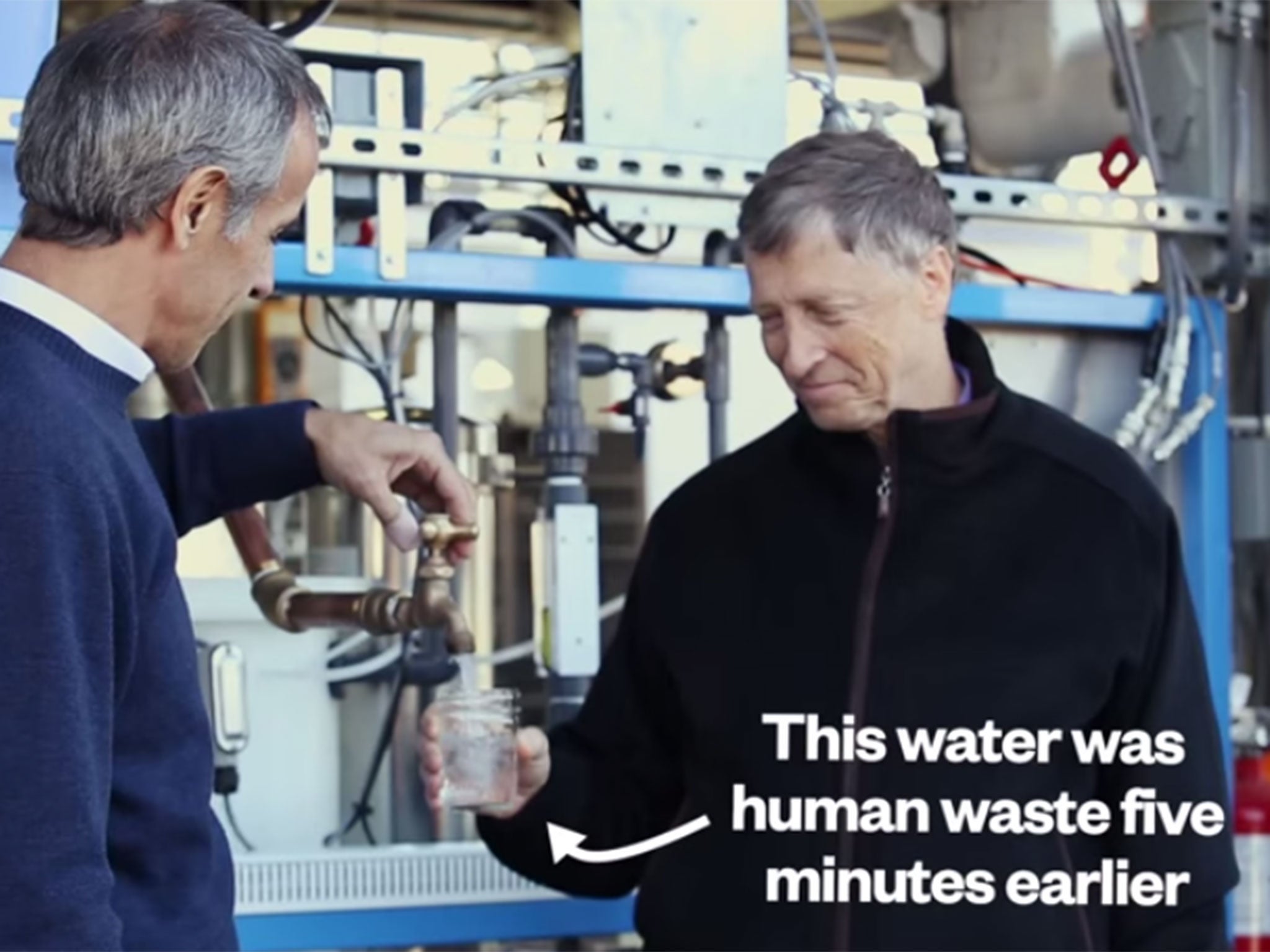Why Bill Gates is drinking water made from human waste
Video: Microsoft man said it 'tasted as good as any I've had out of a bottle'

Your support helps us to tell the story
From reproductive rights to climate change to Big Tech, The Independent is on the ground when the story is developing. Whether it's investigating the financials of Elon Musk's pro-Trump PAC or producing our latest documentary, 'The A Word', which shines a light on the American women fighting for reproductive rights, we know how important it is to parse out the facts from the messaging.
At such a critical moment in US history, we need reporters on the ground. Your donation allows us to keep sending journalists to speak to both sides of the story.
The Independent is trusted by Americans across the entire political spectrum. And unlike many other quality news outlets, we choose not to lock Americans out of our reporting and analysis with paywalls. We believe quality journalism should be available to everyone, paid for by those who can afford it.
Your support makes all the difference.If you thought Bill Gates' contribution to everyday computing was impressive, his latest project could be revolutionary.
The co-founder of Microsoft has made it his mission to save the planet in his retirement through his philanthropic work with the Bill and Melinda Gates Foundation. Now, the husband and wife team are backing a pilot project that hopes to turn human feces into clean drinking water in some of the poorest regions of the world.
Video from "Gatesnotes" shows Gates, listed by Forbes as 2014's richest person in the world with a net worth of $76 billion, drinking a glass of water created by the Janicki Omniprocessor.
The machine, designed by Janicki Bioenergy, an engineering firm based north of Seattle, burns human waste and produces water and electricity, as well as ash.
Gates writes: "I watched the piles of feces go up the conveyer belt and drop into a large bin. They made their way through the machine, getting boiled and treated. A few minutes later I took a long taste of the end result: a glass of delicious drinking water.
"The water tasted as good as any I've had out of a bottle. And having studied the engineering behind it, I would happily drink it every day. It's that safe.
Sipping the water handed to him, Gates says jokingly, "It's water!"
The current machine can handle waste from 100,000 people and produce up to 86,000 liters of water a day and 250 kw of electricity.
Gates stresses that over two billion people do not have access to safe sanitation. For many across the globe, latrines are not drained properly and others defecate in the street. Often, the waste contaminates the drinking water. The result? Gates says that poor sanitation kills 700,000 children every year.
"If we can develop safe, affordable ways to get rid of human waste, we can prevent many of those deaths and help more children grow up healthy."
Gates is now funding the Janicki Omniprocessor's pilot in Dakar, Senegal, which will test how the machine can work with a local community. Gates writes that if it is a success, they will look for other countries to use the scheme, such as India, where Gates believes lots of entrepreneurs could own and operate the machine.
Commenting on the project, Gates concluded, "It’s the ultimate example of that old expression: one man’s trash is another man’s treasure".
Join our commenting forum
Join thought-provoking conversations, follow other Independent readers and see their replies
Comments